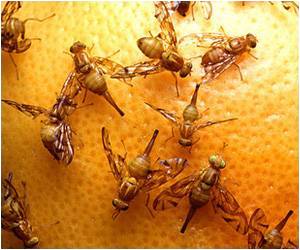A phase I clinical trial has confirmed that use of a generic vaccine to raise levels of an immune system modulator can cause the death of autoimmune cells targeting the insulin-secreting

"We believe we have validated in humans the treatment pathway we originally reported in mice and are seeing early evidence of effectiveness," says Faustman. "Our findings show that this simple, inexpensive vaccine modifies the autoimmunity underlying type 1 diabetes, boosting TNF production and killing the disease-causing T cells, which appears to briefly restore pancreatic beta-cell function. This is not a prevention trial. We are trying to create a regimen that will actually reverse type 1 diabetes in people who are living with the disease. We anticipate that the Phase II trial will give us more direction for turning BCG into a more sustained treatment, including the right dose and the frequency of vaccination needed to sustain a therapeutic response."
A generic drug with over 90 years of clinical use, BCG is currently approved by the Food and Drug Administration for vaccination against tuberculosis and for the treatment of bladder cancer. The double-blind Phase I trial enrolled six long-term type 1 diabetes patients – diagnosed for an average of 15 years – who were randomly assigned to receive two doses of either BCG or a placebo spaced four weeks apart. Blood samples from the participants with diabetes were also compared with samples from six nondiabetic control participants and with samples from 75 additional individuals with diabetes and 15 without. Frequent blood tests measured participants' blood levels of insulin-autoreactive T cells, of an autoantibody, of regulatory T cells that help control the immune response, and of C-peptide, a marker of pancreatic insulin secretion.
During the 20-week study period, two of the three participants treated with BCG showed increases in the death of insulin-autoreactive T cells and in levels of protective regulatory T cells. A temporary but statistically significant elevation in C-peptide levels, suggesting a restoration of insulin production, was also observed in the BCG-treated patients. Unexpectedly, the same responses were seen in one of the placebo-treated patients who, after enrolling in the study, coincidently developed infection with the Epstein-Barr virus, which is known to induce expression of TNF. There were no significant adverse events. The researchers expect that more frequent or higher BCG dosing than was used in this trial will be needed for long-term elimination of insulin-autoreactive T cells and a sustained restoration of C-peptide secretion and insulin production.
"This is an exciting time for type 1 diabetes research," says Paul Burn, PhD, chair and director emeritus of the Sanford Project and professor of Pediatrics at the Sanford School of Medicine at the University of South Dakota. "Dr. Faustman and her team's clinical research data indicate that modifying the autoimmunity underlying type 1 diabetes allows for a safe and temporary restoration of insulin-secreting beta-cell function in patients with established type 1 diabetes. Restoring beta-cell function is a promising first step towards a cure. During my tenure in industry, at Sanford Health and at the Juvenile Diabetes Research Foundation, I have seen how hard it is to get a project from mice into humans, and these are very impressive results."
These findings are consistent with recent trials in Italy that showed BCG vaccination could decrease disease activity and prevent progression of brain lesions in advanced multiple sclerosis, an autoimmune disease also caused by autoreactive T cells vulnerable to TNF-triggered cell death. A recent Turkish study suggested that repeat BCG administration, but not single a BCG vaccination, could prevent diabetes onset in children and that childhood BCG vaccinations prevent the formation of autoantibodies. The PLoS One paper reflects a 20-year journey for the Faustman lab from understanding the role of TNF to developing a way to measure death of the disease-causing T cells in type 1 diabetes and redefining how the pancreas functions in individuals who have had diabetes for decades.
Advertisement
Advertisement













